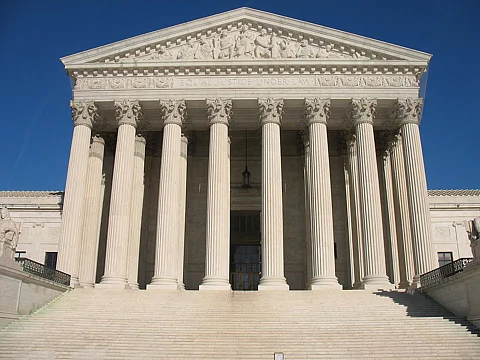

The U.S. Supreme Court on Friday cleared the way for the Trump administration to strip temporary legal protections from hundreds of thousands of immigrants, a move that could put nearly 1 million people at risk of deportation.
The justices lifted a lower court order that had preserved humanitarian parole protections for more than 500,000 migrants from Cuba, Haiti, Nicaragua, and Venezuela. In a separate case, the court also allowed the administration to revoke temporary legal status for about 350,000 Venezuelan migrants.
The administration had filed an emergency appeal after a federal judge in Boston blocked its attempt to terminate the program. In a dissenting opinion, Justice Ketanji Brown Jackson, joined by Justice Sonia Sotomayor, warned that the court’s decision would cause irreparable harm.
"The effect of this order is to have the lives of half a million migrants unravel all around us before the courts decide their legal claims," Jackson wrote.
U.S. District Judge Indira Talwani, an Obama appointee, had previously ruled that ending protections prematurely would force migrants into an impossible choice: flee the country or risk losing everything. While she acknowledged that revocations of parole could be lawful, she emphasized they must be decided on a case-by-case basis—not en masse.
Her April ruling came just before the permits were set to expire. An appeals court declined to overturn her decision, prompting the administration to turn to the Supreme Court.
Friday’s order does not represent a final ruling but suspends protections while litigation continues. The case now returns to the U.S. Court of Appeals for the 1st Circuit in Boston.
The Justice Department contends that humanitarian parole was always intended to be a temporary measure and that the Department of Homeland Security (DHS) has the authority to revoke it without judicial intervention.
Solicitor General D. John Sauer argued that reviewing each case individually would be a "gargantuan task" and hinder the government’s ability to enforce removals. The Trump administration has accused President Biden of abusing parole authority by granting it broadly rather than on an individual basis.
Since 2022, more than 532,000 migrants have entered the U.S. under the program, which requires them to secure financial sponsors and cover their own travel expenses. Attorneys for the migrants argue their clients fled countries plagued by "instability, dangers, and deprivations."
The case is the latest in a series of emergency appeals by the Trump administration, many targeting Biden-era immigration policies. While the Supreme Court has ruled against the administration in other cases—including efforts to fast-track deportations under the Alien Enemies Act—Friday’s decision signals a significant win for its hardline approach.
President Trump has vowed to deport millions of migrants and has systematically dismantled programs that provided legal pathways for asylum seekers and other vulnerable groups.
The humanitarian parole program, established under a 1952 law, has been used by every administration since—including Trump’s first term—to address urgent migration crises, from Hungarian refugees in the 1950s to Afghans fleeing the Taliban in 2021.
The case continues to unfold in the lower courts, with the fate of hundreds of thousands now hanging in the balance.